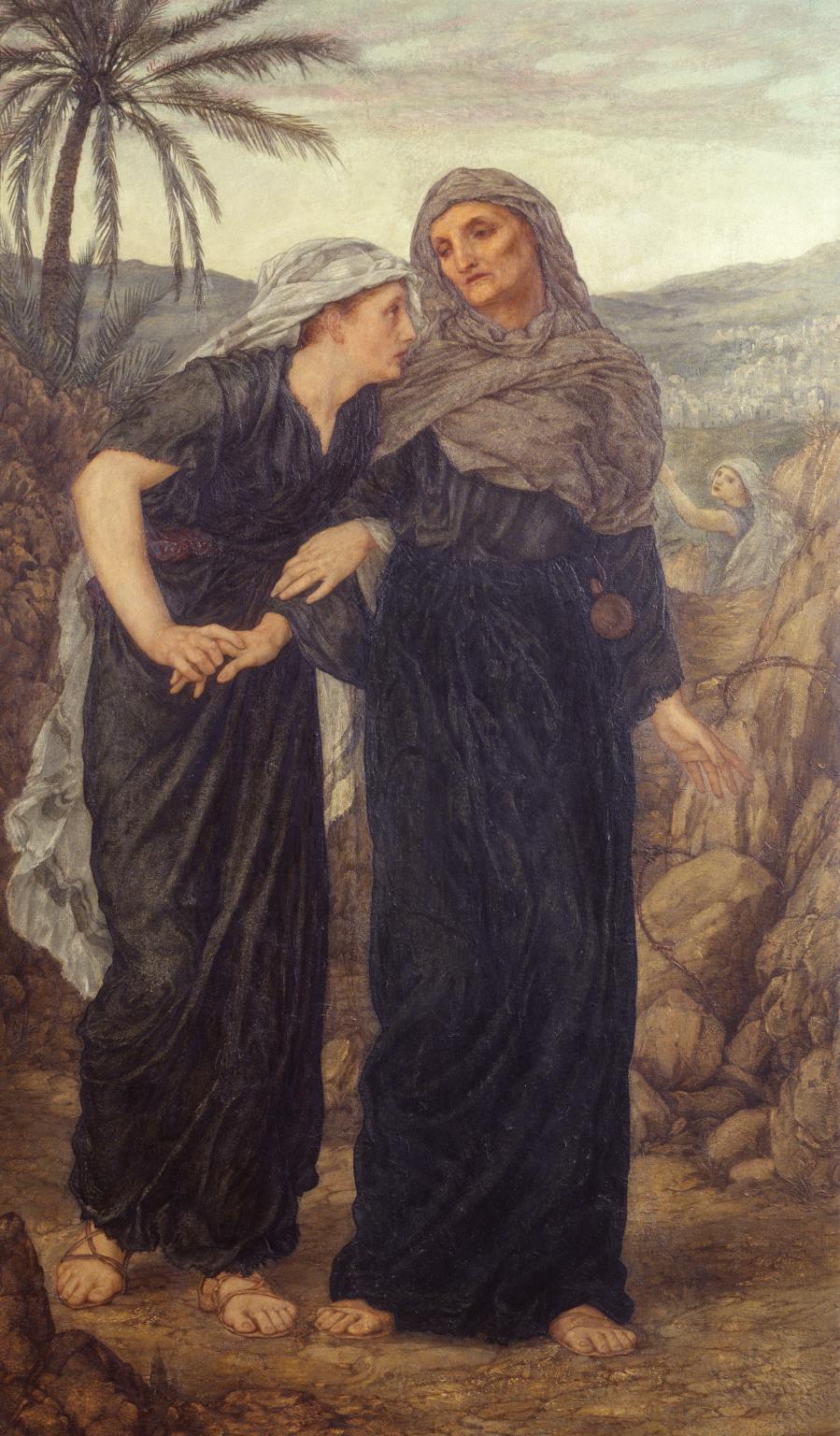Note: If you wish to receive, via e-mail, (1) my weekly newsletter or (2) daily copies of these posts, notify me at rrbates1951@gmail.com and indicate which you would like. I promise not to share your e-mail address with anyone. To unsubscribe, send me a follow-up email.
Sunday
Today the Old Testament lesson is drawn from the “Book of Ruth, the drama in which a widowed Moabite woman chooses to remain with her widowed mother-in-law rather than return to her own people and birth family. Ruth’s words to Naomi are themselves a poem and one of the most beloved passages in the Bible:
Do not press me to leave you
or to turn back from following you!
Where you go, I will go;
Where you lodge, I will lodge;
your people shall be my people,
and your God my God.
Where you die, I will die—
there will I be buried.
May the Lord do thus and so to me,
and more as well,
if even death parts me from you!”
Poet Marge Piercy, returning to the book, is surprised by how much it focuses on “inheritance, lands, men’s names, how women must wiggle and wobble to live.” Yet despite that, the friendship is so powerful that it throws everything else into the shade. Piercy sees the relationship as a love story, which is why she includes Naomi in the title. At times in the poem, it’s not clear whether she’s talking about Ruth or Naomi although the answer is probably “both.”
Thanks to Rabbi Rachel Barenblatt, whose fabulously titled blog The Velveteen Rabbi alerted me to her anthology of Ruth poems, which includes this one by Piercy.
The Book of Ruth and Naomi
By Marge Piercy
When you pick up the Tanakh and read
the Book of Ruth, it is a shock
how little it resembles memory.
It’s concerned with inheritance,
lands, men’s names, how women
must wiggle and wobble to live.
Yet women have kept it dear
for the beloved elder who
cherished Ruth, more friend than
daughter. Daughters leave. Ruth
brought even the baby she made
with Boaz home as a gift.
Where you go, I will go too,
your people shall be my people,
I will be a Jew for you,
for what is yours I will love
as I love you, oh Naomi
my mother, my sister, my heart.
Show me a woman who does not dream
a double, heart’s twin, a sister
of the mind in whose ear she can whisper,
whose hair she can braid as her life
twists its pleasure and pain and shame.
Show me a woman who does not hide
in the locket of bone that deep
eye beam of fiercely gentle love
she had once from mother, daughter,
sister; once like a warm moon
that radiance aligned the tides
of her blood into potent order.
At the season of first fruits, we recall
two travelers, co-conspirators, scavengers
making do with leftovers and mill ends,
whose friendship was stronger than fear,
stronger than hunger, who walked together,
the road of shards, hands joined.
Further thought on Rachel Barenblatt – I love the title of Barenblatt’s blog, not only because it’s a clever pun, but because the theme of Margaret Sharpe’s The Velveteen Rabbit is that the more you love and are loved, the more real you become. By being carried around and played with as much as it is, the stuffed rabbit takes a beating. But rather than being diminished in the process, it becomes more precious. A toy horse explains the process:
“Real isn’t how you are made,’ said the Skin Horse. ‘It’s a thing that happens to you. When a child loves you for a long, long time, not just to play with, but REALLY loves you, then you become Real.’
‘Does it hurt?’ asked the Rabbit.
‘Sometimes,’ said the Skin Horse, for he was always truthful. ‘When you are Real you don’t mind being hurt.’
‘Does it happen all at once, like being wound up,’ he asked, ‘or bit by bit?’
‘It doesn’t happen all at once,’ said the Skin Horse. ‘You become. It takes a long time. That’s why it doesn’t happen often to people who break easily, or have sharp edges, or who have to be carefully kept. Generally, by the time you are Real, most of your hair has been loved off, and your eyes drop out and you get loose in the joints and very shabby. But these things don’t matter at all, because once you are Real you can’t be ugly, except to people who don’t understand.”


